 There are hundreds of do-it-yourself books, pamphlets and TV shows that cover everything from home decorating and repair to fashion and crafts. You can derive a great deal of satisfaction by doing many things yourself, and I’d never discourage any of you from experiencing the pride of a project well done; however, there are some tasks which are better left to professionals–like kidnapping.
There are hundreds of do-it-yourself books, pamphlets and TV shows that cover everything from home decorating and repair to fashion and crafts. You can derive a great deal of satisfaction by doing many things yourself, and I’d never discourage any of you from experiencing the pride of a project well done; however, there are some tasks which are better left to professionals–like kidnapping.
On June 10, 1958, Walter W. Heil, husband, father and attorney, was getting ready to leave his Bel-Air home on Strathmore Drive to go to the dry cleaners to pick up his fifteen year old son’s military school uniform. He was barely out of the house when he was suddenly approached by two men wielding weapons. They appeared to be part of a gang of four—Heil noticed a blonde woman and another man waiting in a car near his driveway. The blonde was twenty-two year old Sylvia Jewel Spicer, Harry’s girlfriend; and the man was twenty-one year old Francis Lee Morris, a mutual friend. The two armed men forced the frightened attorney into his car and drove him out to a lonely shack in Newhall where they terrorized and beat him for over twelve hours.
When he was first taken Heil had absolutely no idea who the kidnappers were or why they’d made him their victim, but during the course of his ordeal it became crystal clear who they were, and what they had in mind.
Two of the men were brothers, Harry (37) and Bruce (39) Tannatt of Glendale, and they were pissed off at Walter because he had represented their mother, Mary T. Tannatt, a year or so earlier in a civil case in which they were all involved.

Francis Lee Morris, Harry Tannatt, Bruce Tannatt
Harry and Bruce had attempted to gain conservatorship of Mary’s assests, over $100,000 (equivalent to $809,000 in current U.S. dollars). The brothers contended that she had come under the domination of a modern day “Svengali” and that she had been brainwashed.
Svengali, if you are not familiar with him, was a fictional character in George du Maurier’s 1895 novel Trilby. Scholars cite Svengali as an example of anti-Semitism in literature because he was depicted as an Eastern European Jew who seduced, dominated and exploited Trilby, a young English girl, whom he transformed into a famous singer. Consequently, a “Svengali” is a person who, with evil intent, manipulates and dominates a person for his/her own gain. In this case the Svengali in question was Mary’s sixty year old part-time business manager (and full-time appliance salesman) Francois Jacques Soiret.
Harry and Bruce had a plan, although it wasn’t a very good one. They thought that they would strong-arm Heil into making a statement about Soiret that would alter the outcome of the nearly two year old court case. The Tannatt brothers were obviously not geniuses; the court case had already been adjudicated and a statement from the attorney wasn’t going to change anything.
Heil’s coerced statement read:
“I have today met with Harry and Bruce Tannatt and friends relative to the Tannatt matter and have written Mrs. Tannatt telling her there seems to be considerable question of Mr. Soiret’s honorable intention relative to Mrs. Tannatt.”
After tormenting him and threatening to kill him for over twelve hours, the kidnappers put Heil back into the car, admonished him to keep his mouth shut, and drove him home. Imagine their surprise when they found that the police were waiting for them. Walter’s fifteen year old son had witnessed the early morning snatch and he and his mother had telephoned the cops.
The suspects were arrested and turned over to West Los Angeles Detective Sergeants V.A. Peterson and Jack Gotch. While the detectives were taking the suspects to the station, Glendale officers searched the home of Harry Tannatt where they confiscated three blackjacks, a gun, knife and a do-it-yourself kidnap kit which consisted of a box with twelve compartments containing everything the kidnappers thought they’d need (well, except for a viable plan). The kit had gauze, adhesive tape, nylon cord, a silk stocking and other items.

The Do-It-Yourself kidnapping kit
All four of the perpetrators were arraigned and each was held on 10,000 bail. The four were initially arrested for kidnapping but miraculously they were held to answer on the lesser charge of false imprisonment and each of them had their bail reduced to $2500.
At some point the clueless kidnappers must have realized that they’d been given a break because all of them plead guilty to falsely imprisoning Walter Heil, Esq.
![Walter Heil recounts his ordeal. [Photo courtesy UCLA Digital Archive.]](https://derangedlacrimes.com/wp-content/uploads/2014/05/heil.jpg)
Walter Heil recounts his ordeal. [Photo courtesy UCLA Digital Archive.]
Harry and Bruce were each sentenced to serve nine months in jail as a condition of five years probation. Sylvia (who married Harry not long after their arrests) was sentenced to 60 days in county jail. Francis Lee Morris’ sentence wasn’t reported but his participation in the abduction was minimal so he likely either walked or was given probation.
![Sylvia Spicer [Photo courtesy of UCLA Digital Archive].](https://derangedlacrimes.com/wp-content/uploads/2014/05/heil-spicer.jpg)
Sylvia Jewell Spicer [L.A. Times Photo]
There was nothing further in local newspapers about the Tannatt brothers until March 1960 when, once again, Harry and Bruce petitioned for guardianship of their mother’s assets. No wonder she had moved to Cuba.
Of course by 1960 Mary, probably preferring not to live in Cuba under the brand new Castro regime, had returned to the United States. Unfortunately her first meeting with her sons in over two years took place in a courtroom.
The brothers were once more attempting to get their mitts on whatever money Mary still possessed; but the wily widow had blocked them by placing most of her remaining assets in the name of her brother, Fred W. Tucker. She was very clear about why she’d transferred her assets to Fred:
“I did it to keep my property out of the reach of my sons. All they want is my property.”
A recording that Mary had made two years earlier, in the hope that it would quash the legal proceedings was played in court. She never wavered from her belief that her children were “selfish and unprincipled” and they were not concerned at all with her well-being but rather with her personal fortune. She referred to Francois Soiret as “…my true friend. My sons are the ones who want to take advantage of me.”
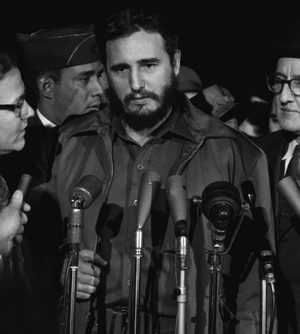
Fidel Castro c. 1959
Soiret was called to the stand to testify to his business relationship with Mary Tannant. He said:
“Mrs. Tannatt entrusted her property to me to protect it from the ravages of lawsuits.”
He told Judge Condee that he had deeded back to her a home in Glendale and a building where her late husband, Henry, conducted a furniture business. He said that she had sold the house and given him $13,500 for safe-keeping. To put it in perspective, the money Soiret crammed into the tool box is equivalent to about $110,000 in current U.S. Dollars.
Mary was surrounded by incompetent do-it-yourselfers and outright idiots. Her sons put together a laughable DIY kidnap kit and a half-baked plan in an attempt to relieve her of her money; and her business manager’s idea of dealing with large sums of cash was a DIY bank—he stuffed her money into a tool box and hid it in his backyard shed.
The outcome of the conservatorship hearing wasn’t reported in the Los Angeles Times–but we can only hope that Mrs. T was triumphant.
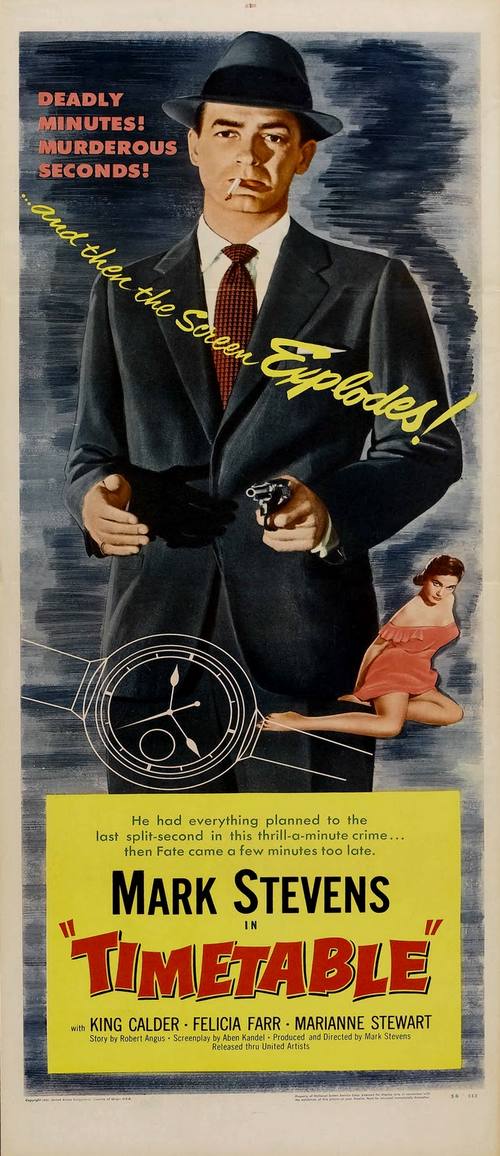

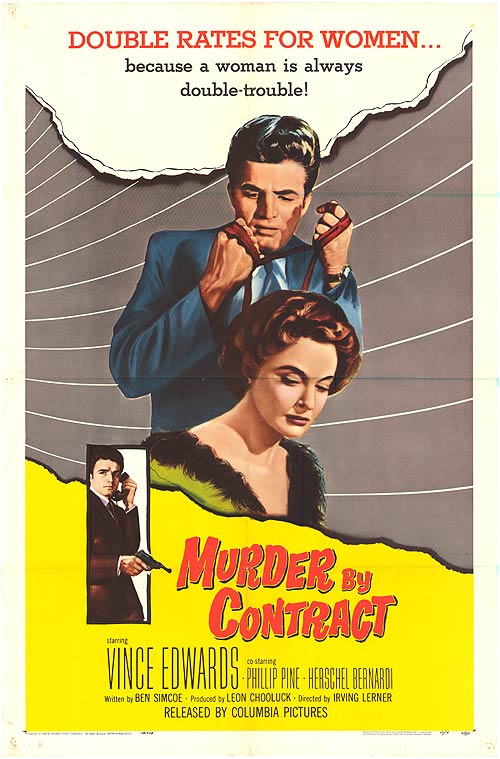
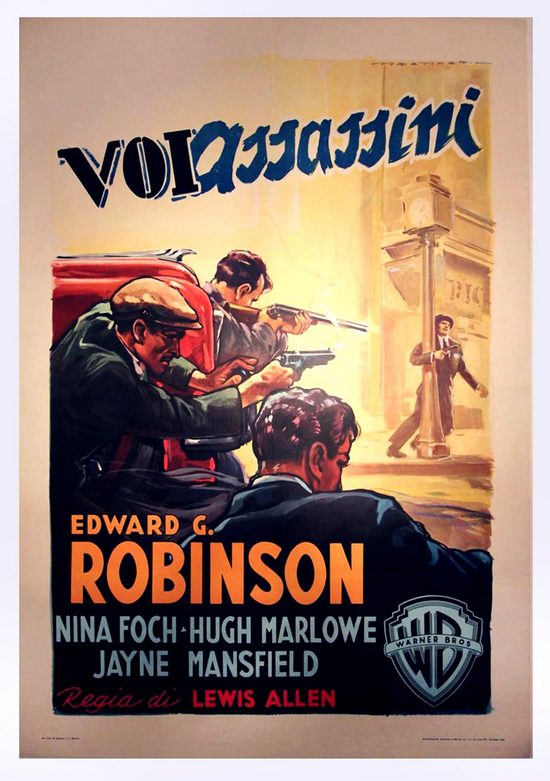
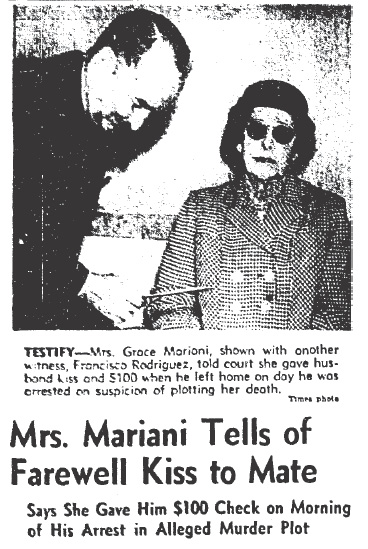
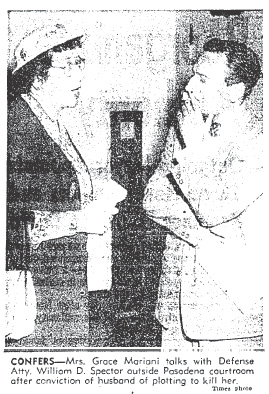
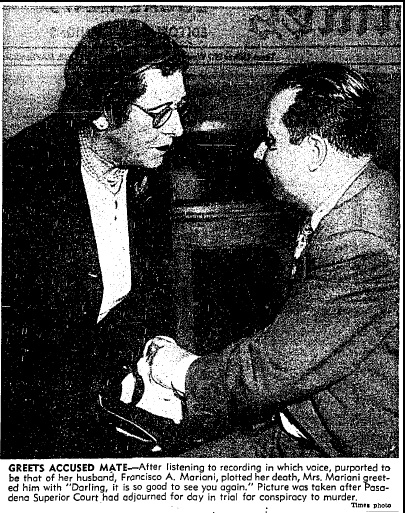


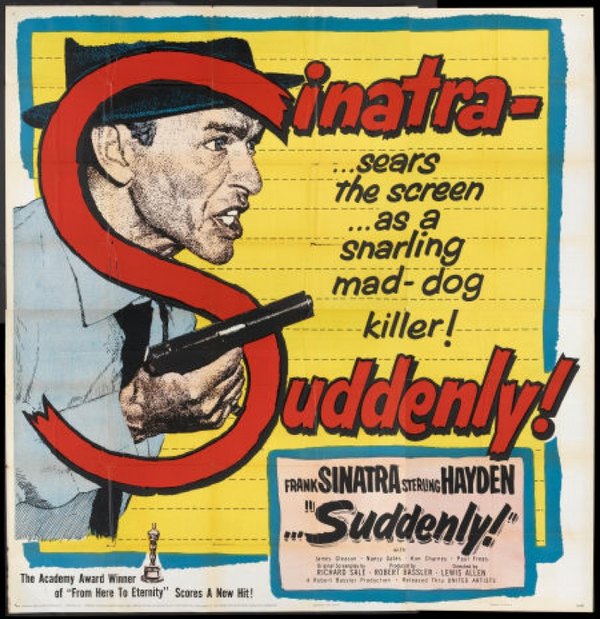
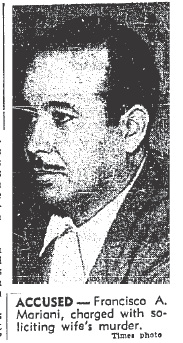
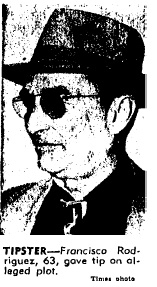

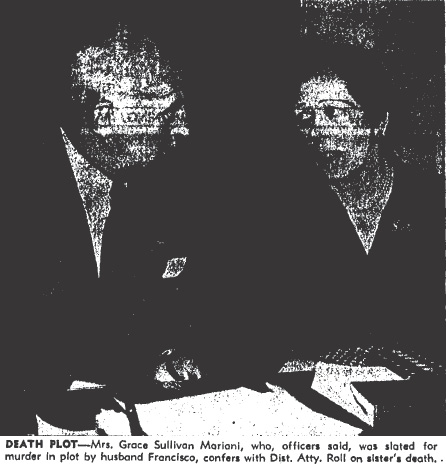
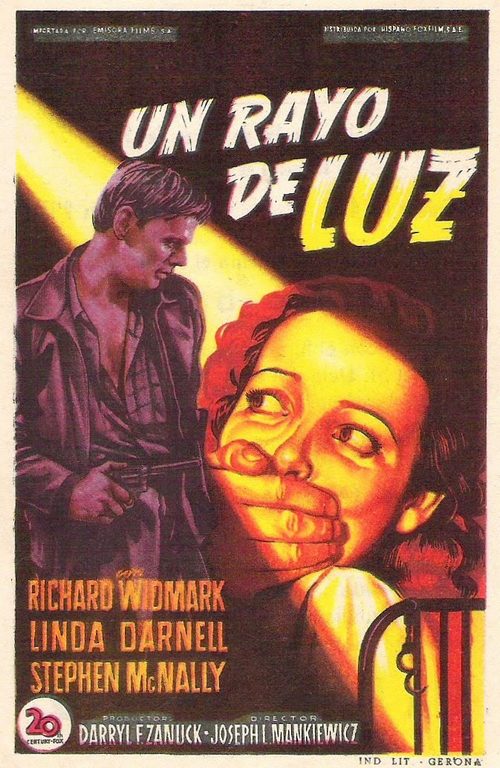
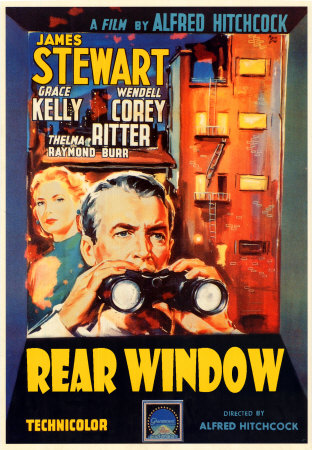
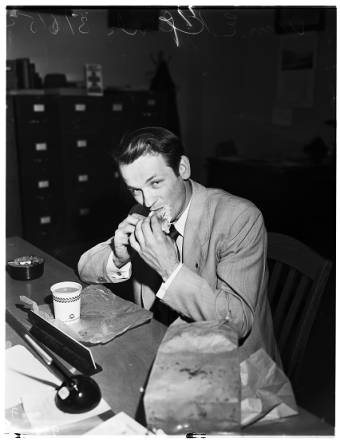

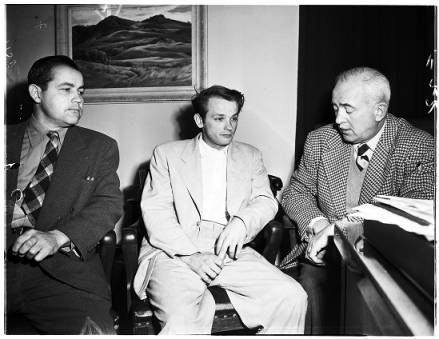
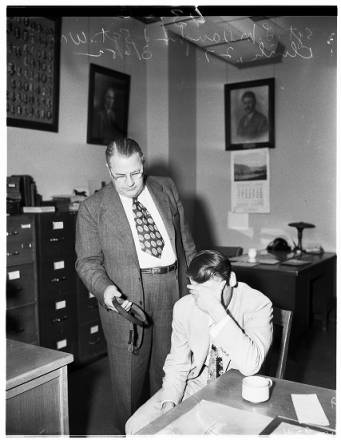

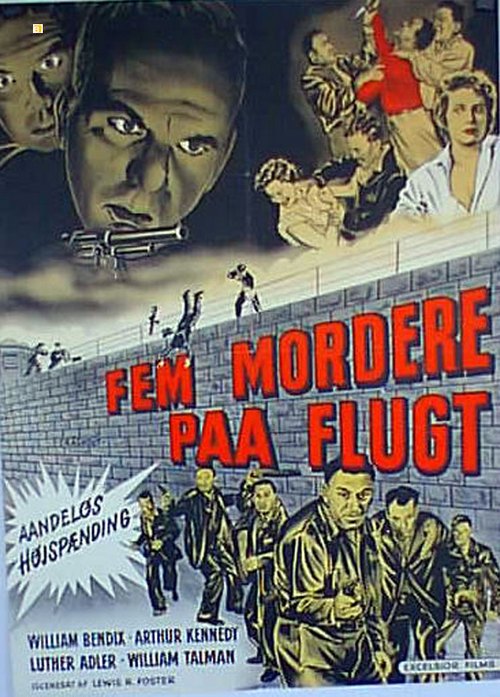



![Walter Heil recounts his ordeal. [Photo courtesy UCLA Digital Archive.]](https://derangedlacrimes.com/wp-content/uploads/2014/05/heil.jpg)
![Sylvia Spicer [Photo courtesy of UCLA Digital Archive].](https://derangedlacrimes.com/wp-content/uploads/2014/05/heil-spicer.jpg)
